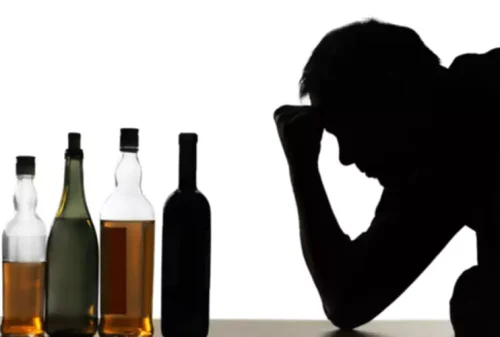
There are few other longitudinal population based studies with which to compare our findings. Among 1,920 community dwelling men and women, those with persistent alcohol dependence had higher odds of insomnia that those without alcohol dependence over a fifteen year follow-up20. Whilst we did not measure alcohol dependence, we did find such an association between hazardous drinking and disturbed sleep in our data.
Alcohol Dependence and Insomnia Associated with Other Sleep Disorders
- Participants were asked to report the number of alcoholic drinks they had consumed in the last 7 days.
- UpToDate delivers evidence-based clinical decision support that is clear, actionable, and rich with real-world insights.View Source Insomnia is also very common in people who are in withdrawal or early recovery from alcohol addiction.
- Studies of the effects of repeated alcohol administration over multiple nightsare rare and suffer from small sample sizes.
- It is, rather, the symptoms of withdrawal taking a physical and mental toll on the person quitting that pushes them back.
- Latencies of N550 and P900 did not differ as a function of diagnosisor sex.
Answer three questions to understand if it’s a concern you should worry about.
Alcohol Dependence and Period Limb Movement Disorder (PLMD).

Depending on how much alcohol is consumed, however, what seems like falling asleep may be something closer to passing out. And we quickly build a tolerance for the sedative effects of alcohol, which means you may need to drink more to have the same initial sleep-inducing effects. Long-term alcohol use negatively affects REM cycles and decreases sleep quality. Over time, sleep deprivation can increase the risk of several chronic health conditions. Many people with insomnia may have difficulty falling asleep at night.
Tips for Managing Sleepiness After Drinking
Alcohol also affects people with central sleep apnea (CSA), which occurs when the brain periodically stops sending certain signals involved in breathing. Alcohol interferes with the brain’s ability to receive chemical messages involved in breathing, which decreases the body’s respiratory drive alcohol insomnia and increases the likelihood of pauses in breathing. Research shows that regular alcohol intake can reduce sleep quality over time, potentially causing issues such as insomnia. When you drink alcohol, it’s absorbed through the stomach and small intestine and moves into your bloodstream.
Emerging data demonstrate that insomnia may co-exist with SSD and circadian abnormalities. Future studies should unravel these tentative associations in individuals who misuse alcohol. Alcohol is highly effective at suppressing melatonin, a key facilitator of sleep and regulator of sleep-wake cycles. Research indicates that a moderate dose of alcohol up to an hour before bedtime can reduce melatonin production by nearly 20 percent. Alcohol has a direct effect on circadian rhythms, diminishing the ability of the master biological clock to respond to the light cues that keep it in sync. Those effects of alcohol on the biological clock appear to persist even without additional drinking, according to research.
How does alcohol affect sleep?

Even if it doesn’t present as a full-fledged hangover, alcohol-related sleep loss negatively affects mood and performance. The most effective time of day for the body to metabolize alcohol, according to research? That’s https://ecosoberhouse.com/ right, the traditional “happy hour” time is actually when the body is most prepared to process that cocktail. If that mimosa with brunch hits you particularly hard, it may be the result of circadian timing.

People with alcohol use disorder experience insomnia at higher rates than those who don’t abuse alcohol. Insomnia doesn’t directly cause alcoholism, nor does alcoholism always cause insomnia. However, the relationship between the two disorders is complicated and closely linked. It’s characterized by difficulty falling asleep, staying asleep, or both. Sleep and circadian rhythm disruption from alcohol also contribute to next-day tiredness, fatigue, irritability, and difficulty concentrating.
- Simply cutting back or giving up alcohol or other drugs can be enough to reverse the negative impacts on your sleep (and can greatly improve your health overall).
- “If you’re a casual drinker who struggles to sleep after a few drinks, there are some simple steps you can take to sleep better,” says Rise Science sleep advisor and medical reviewer, Dr. Chester Wu, who’s double board certified in psychiatry and sleep medicine.
- If that mimosa with brunch hits you particularly hard, it may be the result of circadian timing.
- Moreover, treating insomnia in the alcoholic patients requires special consideration because of the abuse history and potential for overdose with some pharmacological agents when mixed with alcohol.
Your deep restful sleep tends to be more prevalent in the first few hours but decreases during the second half. Logistic regression analyses with the sleep variables as the outcome variable, and alcohol variables as the main exposure, were performed in Stata v15, adjusting for age. Models were carried out separately for the different alcohol measurements, and were stratified by men and women.
